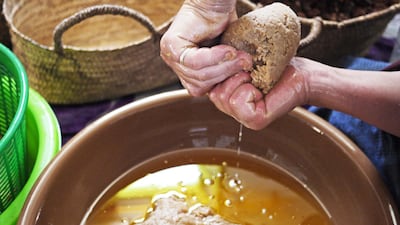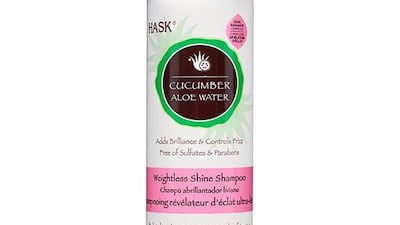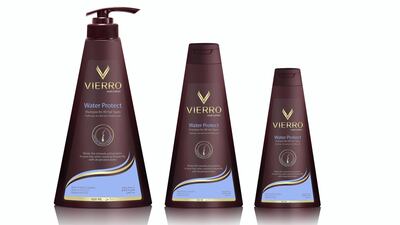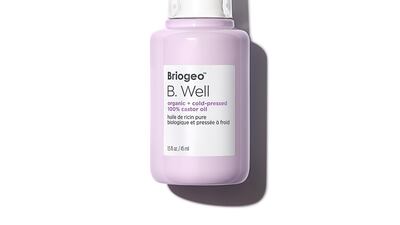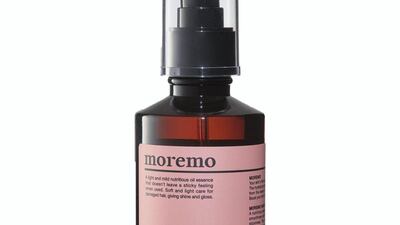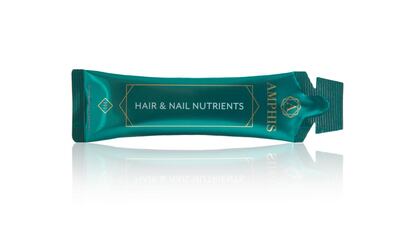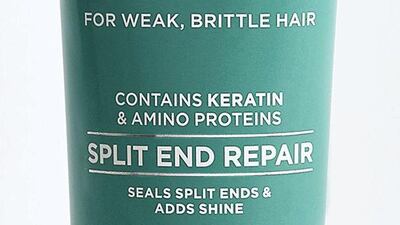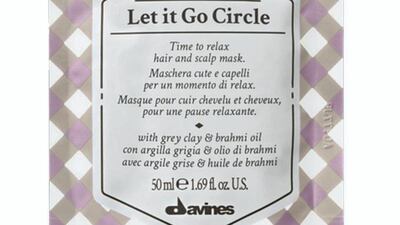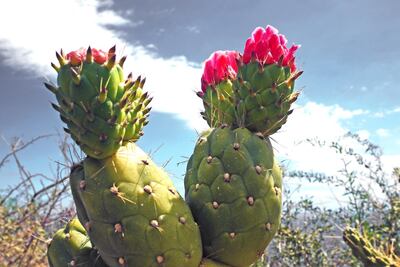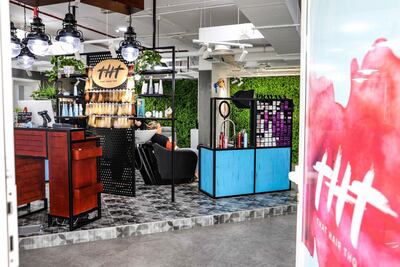"Put oil in your hair." It's a statement Middle Eastern and South Asian girls are all too familiar with, as mothers and grandmothers advise frequent oiling to maintain thick and healthy locks. Some people are even told to use hair masks made from egg yolks. But the thought of having slick, greasy hair or smelling like your breakfast is far from appealing, so instead young women often opt for the latest trendy salon offerings, chemicals and all, to supplement their haircare routines.
"In the short-term, products that contain chemicals, such as sulphates, phthalates, parabens and silicones, can give great results instantly," says Kate Darling, founder of Dubai salon That Hair Tho. "But over time, you will see their true effects on your hair, such as hair loss, drying, breakage and colour change."
That Hair Tho, which is located in Jumeirah Lakes Towers, is at the forefront of a haircare revolution here – one that stems from the worldwide movement towards eco-friendly, sustainable and even vegan alternatives to the chemically ridden, animal-tested formulas in the beauty industry. Inside the salon are walls of greenery, troll and My Little Pony figurines on show, and placards with slogans such as "your vibe attracts your tribe" on countertops. The salon also offers hair services for women who have suffered hair loss because of cancer treatment and has a fair price policy, which means they tell you the full cost before the treatment, with no hidden extras, so there are no shocks after.
Scroll through the gallery above to discover 8 haircare solutions that are packed with natural ingredients.
Darling says the salon uses eco-friendly products made from ingredients that are sourced ethically and packaged in biodegradable containers. "Non-sustainable hair products and toxic chemicals can run down our drains, and have detrimental effects on our marine life and the environment," she explains.
A study carried out last year by a team from the University of Colorado and University of California Berkeley found that shampoos can cause as much air pollution as cars, and washing your hair twice daily can leave a significant carbon footprint. This has led to the emergence of eco-friendly shampoo bars that come without the plastic packaging, alongside the call to wash your hair less frequently – and certainly not once in the morning and again that same evening.
In addition to the rise in demand for sustainability in the beauty world, veganism has also started to gain more traction globally, including in the UAE. "In the past year, there has been tremendous growth in veganism and you can now see a vegan options at almost every restaurant in Dubai," says Darling. "For a hair product to be certified as vegan, it means there are absolutely no animal products used in the ingredients and they are also free from animal testing. Sadly, despite other alternatives, many brands are still testing on animals."
So which ingredients are generally sustainable, animal-friendly and good for your hair? Similar to skincare, natural ingredients are also the key to eco-friendly haircare – and oils are re-emerging as the champions of the lot. A number of spas and salons across the UAE are increasingly offering oil-based treatments to customers, and many home-grown brands are also catering to this market.
"The Middle East has a rich history of home-made self-care products," says Tracey Devine, creative director at Glamour Hair Salon and global brand ambassador for Affinage, a haircare brand that has a line called Kitoko, which is formulated with plant extracts sourced from Africa. "It's nice to see natural ingredients slinking back into the region's beauty routines again. Humans have recognised the benefits of hair oil for centuries. Oils re-energise and revitalise our hair – they replace lost moisture caused by heat damage and over-processing, a common problem in the Middle Eastern summer."
Dubai haircare brand Vierro launched this year with a focus on targeting hair loss due to the effects of chlorinated or desalinated water. "The adverse effects of desalinated water on the hair and scalp in this region include dandruff, hair loss, and a significant calcium build-up on the surface of the scalp that hinders or stunts new hair growth," explains Nidhi Mehta, Vierro brand manager. "Hair oils are essential to rehydrate your hair. When your skin is oily, you still have to moisturise to maintain soft, plump hydrated skin – the same concept applies for hair."
Vierro offers a line of products called oil replacements, to give the hair nourishment and shine without making it look greasy. The brand's formulas are derived almost entirely from plants, using ingredients such as flaxseed oil, peppermint oil, jojoba oil, tea tree oil and Moroccan argan oil, which is widely believed to be the most beneficial haircare ingredient.
Hair colourist Christophe Robin, who has a line of products to his name, has developed a hair-regenerating formula with the star ingredient of prickly pear oil, a beauty secret he discovered during a trip to Morocco. "The oil extracted from the seeds has wonderful benefits," he says. "Women in Morocco use it to heal and protect their skin from the sun; it's a very powerful antioxidant."
Robin says his focus has always been combining natural ingredients to create effective formulas. His hair products carry high concentrations of natural ingredients, starting with his first product, a moisturising oil with lavender, which was 97.6 per cent naturally formulated.
Meanwhile, his intense regenerating balm is 99 per cent natural, while a new cleansing volumising paste with pure rhassoul clay and rose extracts is 85 per cent natural.
Haircare enthusiasts may find it difficult to give up chemical products overnight, but the journey towards going au naturel can be gradual. Seeking out brands that aren't tested on animals, familiarising yourself with ingredients that are harmful to the environment and looking out for formulas that are almost entirely natural is a good place to start.
While proponents of ethical beauty say it's essential for leading a humane, responsible lifestyle, Devine says that to ultimately make the switch to natural or vegan products is a matter of personal preference. Still, the ethical beauty movement, haircare included, seems to be more than a passing trend.
“We all feel compelled to get back to basics nowadays; we have a real desire for simplicity,” says Robin. “The rise of DIY with 100 per cent natural beauty recipes in magazines and online is proof of that.
“We are all looking for healthy products that not only respect our bodies, but also the environment.”
